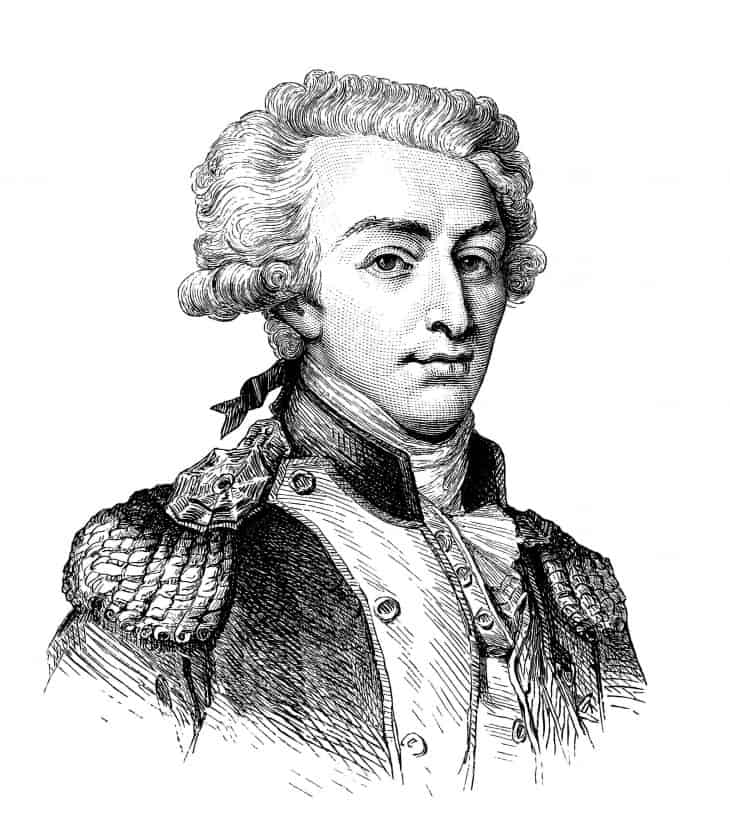
The Marquis de Lafayette stands as a hero not just in one country or continent, but in two. During the American Revolution, he fought alongside the patriots and the Founding Fathers to win freedom for the USA. Later on, during the French Revolution, he fought to end the Ancien Regime, and bring freedom and democracy to France. Learn more about this amazing man with these 30 Marquis de Lafayette facts.
- Legend claims that one of Lafayette’s ancestors found the Crown of Thorns during the Sixth Crusade.
- Lafayette’s ancestor, Gilbert de Lafayette III, once fought alongside Joan of Arc during the Hundred Years War.
- Lafayette’s maternal grandfather served as the commander of King Louis XV’s cavalry guards.
- His paternal uncle Jacques-Roch died fighting during the War of the Polish Succession.
- Lafayette’s father also died in battle, during the Seven Years War.
- Lafayette came into the world on September 6, 1757, in France’s Auvergne Province.
- Lafayette joined the Musketeers with an officer’s commission in 1771, aged only 13.
- He later sailed to America to join the American revolutionaries in 1777.
- On arrival, he received the rank of major-general but did not command troops at first.
- He later fought with distinction at the Battles of the Brandywine and Rhode Island.
- He also fought during the Siege of Yorktown, which ended the war with an American victory.
- Lafayette entered politics on his return to France after the American Revolution.
- He became a leader during the French Revolution but fled into exile at the start of the Reign of Terror.
- He returned to France after Napoleon Bonaparte’s rise to power.
- After Napoleon’s fall, Lafayette became a liberal politician until his death.
- Lafayette had the birth name of Gilbert du Motier.
- He inherited the title of Marquis de Lafayette on his father’s death in 1759.
- In the July Revolution of 1830, he rejected an offer from the revolutionaries to become Dictator of France.
- Lafayette initially supported Louis-Philippe as King of France after the July Revolution.
- After the king adopted dictatorial policies, Lafayette withdrew his support for the monarchy.
Was this page helpful?
Our commitment to delivering trustworthy and engaging content is at the heart of what we do. Each fact on our site is contributed by real users like you, bringing a wealth of diverse insights and information. To ensure the highest standards of accuracy and reliability, our dedicated editors meticulously review each submission. This process guarantees that the facts we share are not only fascinating but also credible. Trust in our commitment to quality and authenticity as you explore and learn with us.


